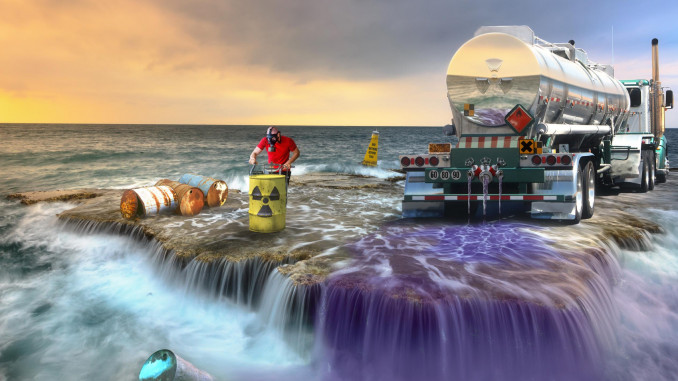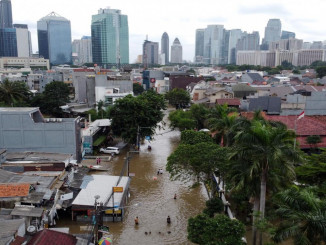
A recent report has been released, that reviewed data from the Environmental Protection Agency, and found that close to half a trillion gallons of toxic waste water spills out of oil and gas refineries, across the United States, every single day. In other words, the daily amount of toxic wastewater discharged could fill an estimated 700 Olympic sized swimming pools. This has extremely harmful impacts on local ecosystems.
There are currently 130 refineries across the United States. While the study only looked at 81 of the total 130 refineries, at least 56 of them were discharging their toxic wastewater into lakes, streams and estuaries.
This includes the refineries along the San Francisco Bay, such as Chevron in Richmond, Valero in Benicia. They dump more than a million pounds of nitrogen, and thousands of pounds of nickel selenium and ammonia, as well as oil and grease, arsenic, cyanide and hexavalent chromium into the Bay and local waterways.
Exposure to these chemicals has been linked to physical deformities of fish and birds. In the summer of 2022, high concentrations of these chemicals led to a major algal bloom in the Bay, killing large numbers of sea life.
These problems are not unique to the Bay Area or California. In Indiana, the BP Whiting Refinery spilled roughly 39 barrels of oil in Lake Michigan in 2014, leading to health problems for those exposed. Along the Texas coastline, nearly 4,500 pounds of selenium dumped into the Gulf Coast by the Port Arthur Refinery, which has led to massive damage to fish eggs, and 770,000 pounds of nitrogen were dumped causing algae blooms, creating “dead-zones” in parts of the water.
In fact, most of this pollution is legal. The times that the refineries have exceeded their legal limits have very rarely led to any sort of legal consequences. When they did clearly violate the law, the report found that they were penalized only around one quarter of the time.
Not surprisingly, this pollution does not impact poor and affluent people equally. In the study of the 81 refineries, 56 of them had low-income residents exceeding the national average within a three-mile radius. Also not surprisingly, there is a racial component. Of the 81 refineries looked at in the study, 43 had people of color exceeding the national average, within a three-mile radius.
Despite the Clean Water Act, which was passed in 1972, the agency has been largely incapable of carrying out the most minimal regulations on industry to prevent this water pollution. In fact, the agency is prosecuting fewer polluters than at any other time in the past few decades. Part of the reason why the EPA has been exceptionally inept at holding polluters accountable is that the agency lost more than 1,200 scientists and policy researchers during the Trump presidency, which likely further demoralized and burnt out workers with minimal resources to fight pollution. On top of this, the Biden administration has recently enacted a range of highly technical new regulations related to the administration’s purported climate goals. In other words, there is more work than ever to be done, and fewer people than ever to get it done.
At the core, while the Trump administration was exceptionally harmful when it came to the environment, the problem goes much deeper than one presidential administration or another. Expecting the capitalist government to truly hold industry accountable for any pollution that they are responsible for is like expecting a fox to guard a hen-house. More often than not, the government is beholden to the corporations, if not made up by the exact same people. The destruction of our ecosystem is systemic in nature, which means that nothing short of total change to the system is necessary, if we are going to have a viable future on this planet.




